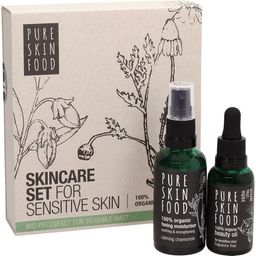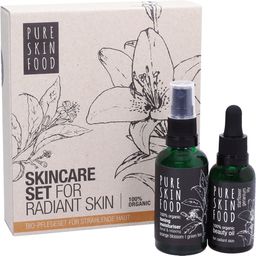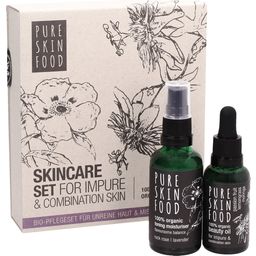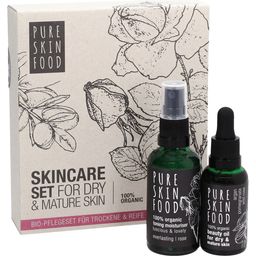

Recognise Your Skin Type And Find The Right Care
Do you know what skin type you are? Impurities, dry spots or an oily T-zone - we explain how to determine exactly what your skin needs and which products are right for you.
Just as every person is different, so is every skin. Many people don't know exactly what skin type they have and which products are right for them. We will show you how to determine your skin type and recommend suitable products so you can shine again!
Determine your skin's current status
It's best to analyse your skin in the morning when it's untreated and without make-up. Stand in front of a well-lit mirror and take a close look: Do you see large pores? Are there oily and shiny patches or dry and flaky ones? Or even both? Are there fine lines or age-related lines from laughter and life?
The texture of your skin says a lot about its age, moisture status or impurities. Take a particularly close look at radical changes: Our skin often changes in different phases of life, e.g. during pregnancy, after moving to a city or after a change in diet.
In serious cases, providing the right care from the outside is not always enough, some symptoms are signs of allergies or the result of polluted air. In this case, take a closer look at your lifestyle and try to find out what could be causing it.
The characteristics of the main skin types:
Impure skin, acne
We all know blemishes - but there are also differences here: Inflamed and reddened pimples can be a sign of allergies or food intolerance. You can reduce blackheads and large pores with certain products.
We recommend:
For large pores: use our Skin Glow Mask with Strawberry once or twice a week. The high vitamin C content refines the pores. A mild fruit acid peeling gives your complexion a fresh glow!
To combat pimples & blackheads: Our green superfood face mask cleans deep into the pores and has an anti-inflammatory and antibacterial effect. Used once or twice a week, it helps reduce blackheads.
Most importantly, be sure to use a gentle but effective cleanser. Impurities are mainly caused by dirt on the face - so hands off!
Combination skin
If you find both dry and oily spots, you have combination skin. It may be that the classic T-zone becomes apparent - i.e. the forehead and nose shine (strongly) from an excess of sebum and cheeks are rather dry or normal. The most common mistake is products that are too aggressive and are supposed to dry out the oily areas. However, some skin reacts to this by producing even more oil.
We recommend:
It is therefore better to use a mild cleanser, for example the Cleansing & Detox Oil and balancing products for care. Lavender and calendula restore balance and soothe the skin.
Mature skin
From the age of 30, most of us discover our first wrinkles. It doesn't have to be so! Many wrinkles form because the skin lacks moisture. Your face should never feel tight or dry. Keep hydrated on the inside and outside of your body!
We recommend:
Lots of moisture and rich care with lots of antioxidants to keep a fresh complexion. Happy aging instead of anti-aging!
Our secret weapon against signs of skin aging: This Liquid Gold Well-Aging Serum with prickly pear oil and magnolia extract. Wrinkles don't stand a chance!
Dry skin
As with mature skin, the same applies here: Moisture is the be-all and end-all - if your skin is tight and skin cells are already forming, there is an urgent need for action.
We recommend:
This superfood peeling mask smoothes the complexion and removes excess skin cells. Follow this with an intensive moisture boost using the 7-skin method and then rich care - in the morning and in the evening!
Sensitive skin
Fair types, people with freckles and red hair often have particularly sensitive skin. Though, of course, this can also affect anyone else. Take the test: Run a pointed object, such as a fork, down the inside of your forearm. If red welts quickly appear, have sensitive skin.
We recommend:
Sensitive skin often reacts to essential oils. In this article, we explain why that is. It's better to test new products on a small area, for example on the cheekbones, and to be on the safe side, use products without particularly stimulating essential oils such as peppermint.
For this, we have developed a wonderful fragrance-free care set without any essential oils. However, not all skin reacts to the same ingredients, so the rule here is to test yourself slowly!
Special case rosacea
If the skin on your cheeks and nose is red and you can see enlarged blood vessels, then you may have rosacea or couperose. In this article, we have summarised for you what helps to combat redness.
We recommend:
The Rosacea Care Kit consists of a face mask and toner that make it easy to soothe redness at home.
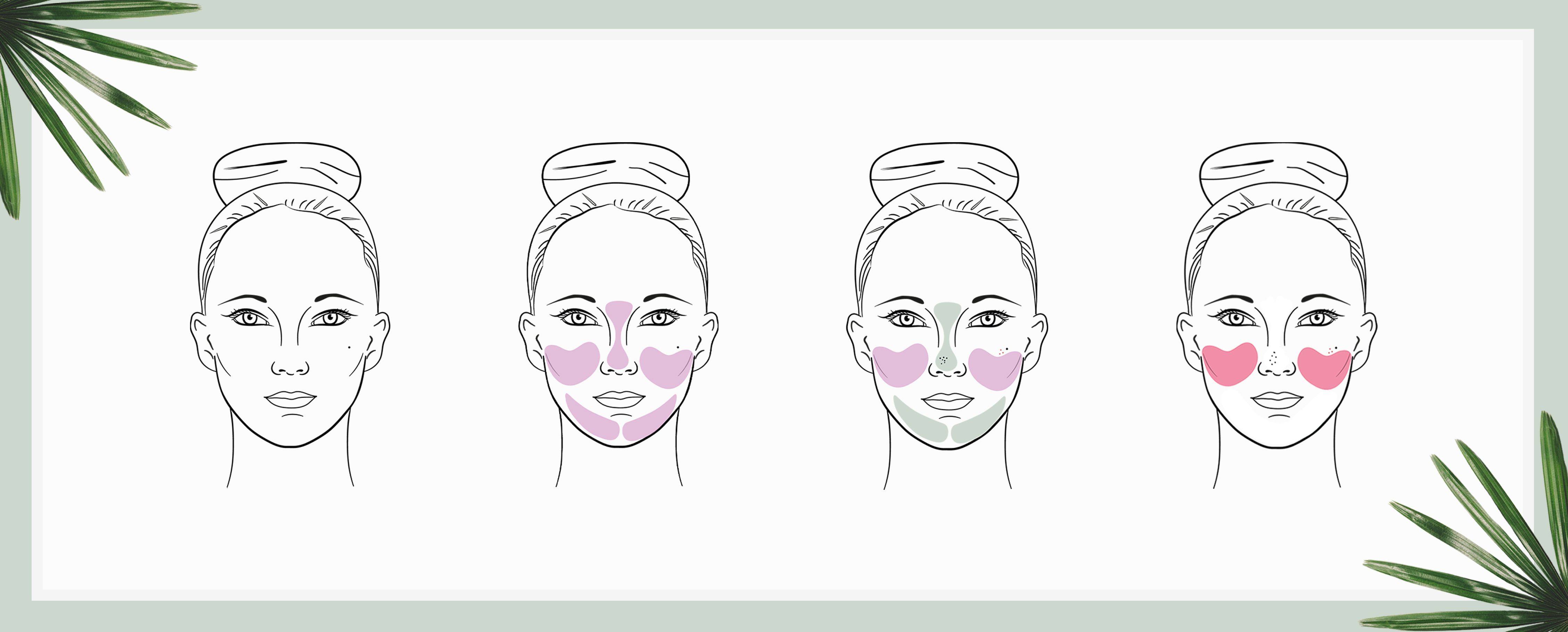
Are you new to us? Then we recommend one of our care sets for the most common skin types.
Do you have impure skin but don't like the scent of lavender? All of our products are also available individually, so you can put together your personal care routine for a radiant complexion!
Documents
- Different skin types(1,21 MB)
Magazine Articles:
-
Great Britain: Free standard delivery from £49.90
-
Free
returns We deliver worldwide to
more than 40 countriesSecure payments
with SSL encryption technology
